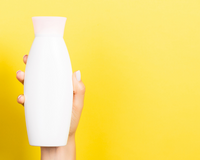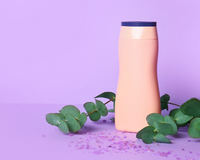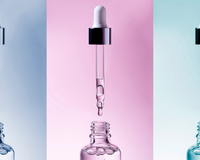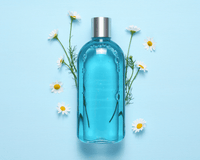Best Moisturizer For Dry Skin
When you're faced with infinite bottles, jars, and vials at the cosmetics counter, picking the best moisturizer for dry skin might be difficult. Consider the degree of your condition, the causes, and when you use the product when choosing a moisturizer for dry skin, then look for components that target dry skin. Find out what skin type you have. Your skin type can assist you in determining which products are best for you. Different products work better for different skin types.
For dry skin, a thicker, oil-based moisturizer is recommended. If your skin is cracking, you may want to try petroleum-based products; however, if your skin has additional difficulties in addition to dryness, you might consider adding a couple of other types of moisturizer to your skin care routine.
Try using a milder moisturizer after washing your face if your skin is greasy and prone to acne outbreaks. Oily portions of the body, such as the face and scalp, will not require the same treatments as other body parts. Ingredients like aloe and chamomile can help if your skin is easily irritated and prone to redness and rashes.
How To Find The Best Moisturizer For Dry Skin?
These calming ingredients moisturize damaged dry skin. Anything with scents or dyes should also be avoided. Because oil-producing glands in the body become less active as you get older, an oil-based moisturizer is preferable.
Investigate any underlying issues. Dry skin could be a sign of underlying skin issues. If your skin dryness is accompanied by certain symptoms, you should consult a dermatologist for a prescription lotion.
Dry skin can be caused by eczema and psoriasis. If you have one of these illnesses, you will develop scaly rashes and your dead skin will come off in flakes on a regular basis. Dry skin can be caused by exposure to the sun.
Check The Label
If you require assistance, ask for it. As a doctor, pharmacist, dermatologist, or someone who works in a health food or skin care store, if you're unclear about what kind of moisturizer is best for your needs. People are frequently unclear what kind of goods they require if their skin is dry in some areas and oily in others, or if they have particular conditions, such as eczema, and are concerned that products may aggravate symptoms. If you're having trouble making decisions, get expert assistance.
To begin, read the labels of any products you're interested in. You should be on the lookout for different substances depending on your skin type. Heavy moisturizers are recommended for people with dry skin. A moisturizer with antioxidants, dimethicone, grape seed oil, or petrolatum can assist to decrease water loss from the skin.
You can always apply a water-based moisturizer on your face and an oil-based moisturizer on dry areas like your knees, hands, and elbows if you have oily skin around your face. It should be labeled "oil-free" and one of the first components should be water.
Do A Patch Test
It's likely that you'll have to try a few different moisturizers before finding one that works for you and your skin. It may be advisable to get tiny bottles of a variety of products until you find one you enjoy. Check to see if any products you're interested in testing have travel-size or sample-size alternatives, as this will save you money and avoid you from buying lotions you won't use.
Aim to purchase a moisturizer that also functions as a sunscreen. It's critical to protect your skin from the sun, especially if it's prone to dryness or breaking. Look for a moisturizer that also protects your skin from the sun. Sunscreen is often used in moisturizers.
How To Apply Moisturizers?
When you get out of the shower, use a moisturizer. Certain oils are removed from your skin when you take a hot shower. Apply your favorite moisturizer as soon as you get out of the shower to replenish these oils, paying special attention to your legs, knees, hands, and other dry regions.
Instead of lotions, use ointment and creams. Use olive oil or shea butter-based lotions or ointments. When using thicker creams, take special care. In general, thicker oil-based creams should not be used on the face unless the skin is extremely dry. This can cause acne outbreaks by clogging pores.
How Do Moisturizers Work?
Moisturizers draw moisture from the environment and lock it in, keeping the skin hydrated and supple. They increase ceramide formation in the body, which prevents water loss from the skin's top layer.
The majority of moisturizers are emulsions of oil and water. This is because the oil aids in the retention of moisture in your skin. Plain water is prone to evaporation. It's the oil that's holding it back.
Humectants are substances that draw moisture from the air and adhere it to the skin. Humectants, on the other hand, in exceptionally dry areas may end up attracting water from within the body, contributing to the dryness. This is why the majority of humectants are used in conjunction with emollients. Their objective is to make the skin smoother.
Ingredients Of A Moisturizer
Antioxidants aid in the relief of dry skin and the overall health of the skin. They reduce the appearance of fine lines and wrinkles and improve the texture of the skin. If you have dry skin, you should look for a moisturizer that is high in antioxidants.
Vitamin E is a powerful antioxidant. Vitamin E encourages the body to produce more collagen. Its photoprotective capabilities shield the skin from the harmful effects of ultraviolet radiation.
Vitamin E appears to be useful in the treatment of atopic dermatitis, according to research. Vitamin E is abundant in nuts, whole grains, olive oil, and seeds. This is responsible for the color of red fruits and vegetables. Sunburn is thought to be protected by lycopene. It boosts the body's collagen production while also reducing skin damage.
Niacinamide increases the skin's surface texture and smoothness. It creates a ceramide barrier, which heals fine wrinkles and protects the skin from additional harm. The skin maintains moisture as a result of this. So, all skin types benefit from niacinamide.









